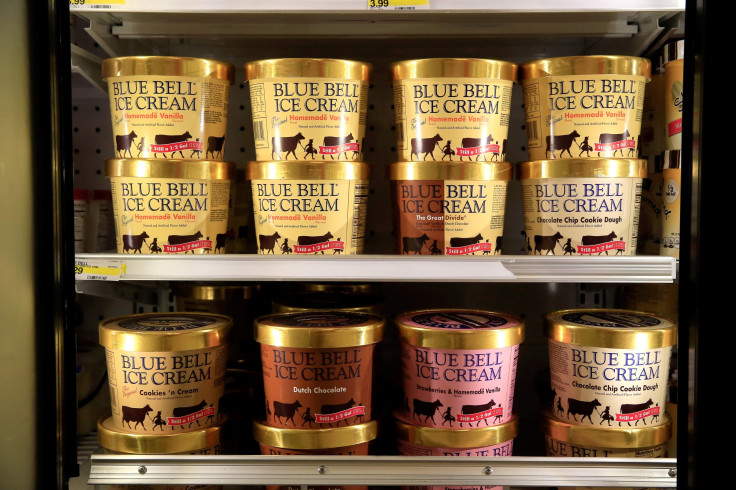Blue Bell Listeria Outbreak 2015: Contaminated Ice Cream Still Poses Danger, CDC Warns After Finishing Investigation

The U.S. Centers for Disease Control and Prevention (CDC) has wrapped up its investigation into a deadly outbreak of the bacteria listeria, which is linked to ice cream and other products from Blue Bell Creameries, the agency posted on its website Wednesday. But that doesn't mean the bacteria no longer poses a threat, it warned.
"Recalled products may still be in people's freezers and consumers unaware of the recalls could eat them," the agency said. It recommended that no one eat or serve Blue Bell ice cream, frozen yogurt, sherbet or any other products. If, upon scouring their freezers, people find Blue Bell products, they should return them to the store or throw them away -- even if the products had been eaten and no one had gotten sick, the agency advised.
The CDC concluded that the outbreak, which involved 10 cases of listeriosis from 2010 to 2015 in four different states, was linked to Blue Bell Creameries. It traced the illnesses to ice cream and ice cream products manufactured in Blue Bell factories in Texas and Oklahoma where the bacteria had been found.
Listeria bacteria thrive in the cold, making frozen desserts an ideal environment for them. Illnesses caused by these bacteria are particularly dangerous for people with weakened immune systems and for pregnant women. People sickened by listeria usually develop symptoms that include fever, aching muscles and diarrhea within a few days of eating the contaminated food.
When evidence emerged in March that illness-causing listeria bacteria had been found in several flavors of Blue Bell ice cream, the company recalled eight of its products. By April 20, it had recalled all of its ice creams, frozen yogurts and other icy treats. The bacteria were first detected in 2013 at one of the company's plants in Oklahoma.
Blue Bell has said that it is completely reassessing and revamping operations at its plants in order to ensure its facilities are clean and sanitary so that in the future, its ice creams and other desserts will be safe to eat. In May, the U.S. Food and Drug Administration released findings from inspections it carried out at factories in Texas, Oklahoma and Alabama. In Brenham, Texas, it observed a "failure to manufacture foods under conditions and controls necessary to minimize the potential for growth of microorganisms," as well as a "failure to clean food-contact surfaces as frequently as necessary to protect against contamination of food," among other shortcomings.
The outbreak had a devastating impact on the Texas-based Blue Bell Creameries. It has temporarily closed factories in Texas and Oklahoma, and in mid-May it laid off 1,450 workers throughout the United States. It remains unclear as to when the company will re-enter the market, but Paul Kruse, its CEO and president, has said it would do so gradually and expand offerings "only after our revised programs have demonstrated they are capable of ensuring product safety."
© Copyright IBTimes 2024. All rights reserved.





















